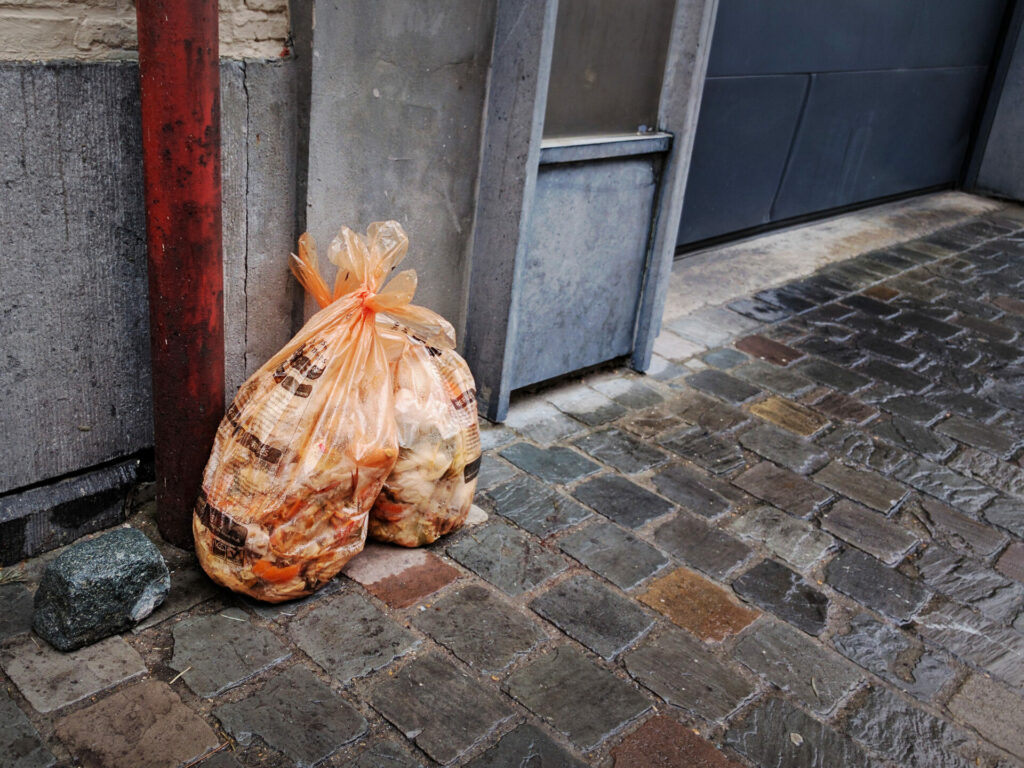From the start of 2024, the mandatory recycling and recovery of organic waste will be enforced across the EU to prevent unnecessary incinerating. But in Brussels, a new system has already been put in place to deal with the issue.
The EU rules aim to drive the green transition, with household waste being a major area of concern in the effort to bring down carbon emissions. Since 15 May this year, the Brussels region has been the first in Belgium to make the changes and though no fines for non-compliance have yet been issued at a citizen level, it is expected that future violations will lead to sanctions ranging from €50 to €100. In serious cases, this could go into the thousands.
A spokesperson for Bruxelles-Propreté (the capital’s rubbish collection and urban cleaning department) told RTBF that a period of adjustment will be allowed for Brussels residents.
What happens to food waste?
Food waste, such as peelings and spoiled food, represents more than a third of our household waste. Bruxelles-Propreté currently collects 11,000 tonnes of food waste a year; it hopes to double this by 2026. When thrown into the general waste white bin bags, the food goes unsorted and directly to the incinerator rather than being transformed into fertiliser and green energy.
The orange bags for food waste have existed since 2013 in some Brussels municipalities. In 2017, all Brussels municipalities opted to use them on a voluntary basis. But since May 15, it has been mandatory for households as well as companies and administrations.

Belgium has historically been above the EU average for household waste per capita but will the new policies turn this around? Credit: Eurostat
The organic waste from Brussels, once collected and stored, is eventually transported to a biomethanation plant in Ypres, Flanders: "It ends up in tanks that are heated to 40°C,” the spokesperson explained. “This produces biogas which is composed of roughly 45% CO2 and 55% methane. It is then redistributed in the network or it is used in cogeneration units. Another residue called 'digesta' is a black liquid rich in organic matter. It is used on agricultural land to reduce the use of chemical fertilisers."
Related News
- Brussels one step closer to deposit system for cans and plastic bottles
- 'Laughing gas' capsules cause explosions in waste incinerators
Today, the treatment of its waste costs €110 per tonne. However, this should fall as the Brussels Region hopes to install its own biomethanation unit by 2026. It could then accommodate up to 30,000 tons of food waste without the need for distant transportation.
Storing organic waste, especially during hot weather, gives off odours, attracts insects and vermin, and generates foul-smelling liquid that can flow from the orange bags. To combat this, Bruxelles-Propreté offers 30-litre mini-containers that you can leave on your sidewalks. But it remains mandatory to put the bag in the container – the contents will not be collected otherwise.
A total of 300,000 orange mini containers will be made available and can be collected from a Recypark or from specific commune locations.

